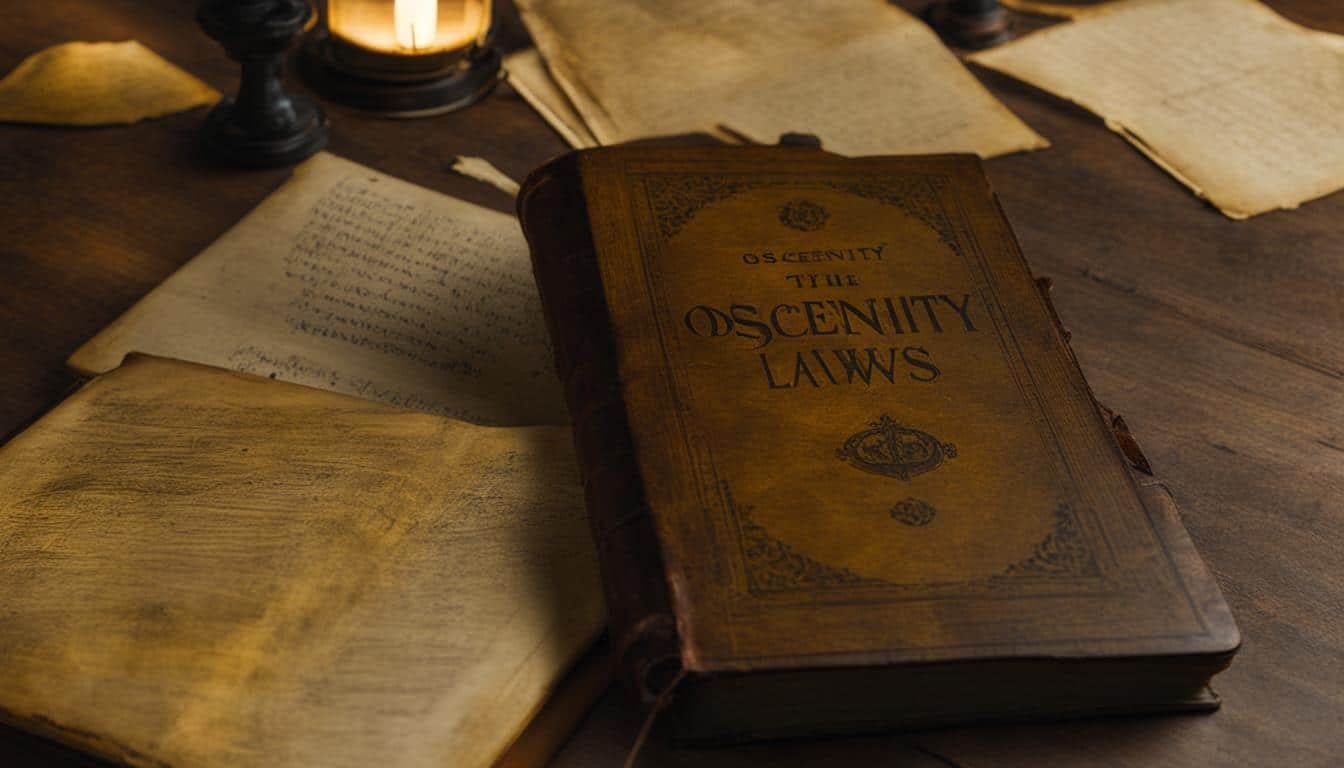The First Amendment of the U.S. Constitution, passed in 1791, guarantees the right to freedom of speech and press. It allows individuals to express their opinions, publish information, and access various forms of media without government interference. The First Amendment also protects the right to receive information, ensuring that individuals can access a broad range of ideas and make their own judgments. However, this right is not absolute, and there are limits to protected speech, such as obscenity, defamation, and incitement of violence. Censorship laws are crucial in journalism to navigate the line between protected and unprotected speech, ensuring ethical reporting while maintaining the principles of free expression.
Key Takeaways:
- Censorship laws play a vital role in journalism to balance freedom of speech with ethical reporting.
- The First Amendment protects the right to freedom of speech and press but sets limits on protected speech.
- Journalists must navigate the line between protected and unprotected speech to ensure ethical reporting.
- Censorship laws safeguard against obscenity, defamation, and incitement of violence.
- By maintaining ethical reporting, journalism retains the principles of free expression.
The Impact of Censorship on Journalism
Censorship in journalism is a concerning phenomenon that has far-reaching implications. It revolves around the suppression of ideas and information that certain individuals or government officials find objectionable or dangerous. This form of control can take various shapes, such as restrictions on spoken words, printed matter, symbolic messages, and even online content. Its ultimate goal is to limit freedom of thought and expression, often leading to the manipulation of public opinion and the control of the flow of information.
In some countries, censorship goes hand in hand with government-controlled media, resulting in a lack of independent journalism and a limited representation of diverse perspectives. When the dissemination of news predominantly comes from a single source, critical information can be withheld, investigative reporting can be hindered, and transparency within society suffers. The very essence of journalism, which is to inform the public and hold power accountable, becomes jeopardized under such circumstances.
“Censorship poses a threat to press freedom and the democratic principles that journalism upholds.”
Censorship and Media Manipulation
A key aspect of censorship in journalism is its connection to media manipulation. When information is filtered or curated to serve a specific narrative, it becomes increasingly difficult for the public to access diverse perspectives and make informed judgments. This manipulation can be carried out at both subtle and overt levels, with the aim of shaping public opinion in desired ways.
Censorship can inhibit the ability of journalists to report objectively and independently, as they may face pressure or even direct intervention from authorities. This interference can lead to self-censorship, where journalists withhold or alter information out of fear of reprisal. As a result, the public may be left uninformed or misled, undermining the core principles of journalism and eroding trust in the media.
| Censorship in Journalism | Consequences | |
|---|---|---|
| Suppression of Ideas | Censorship stifles the free exchange of ideas and limits the diversity of perspectives in the media. | Restricted access to information, lack of pluralism, and potential manipulation of public opinion. |
| Government Control | Authorities dictate what can and cannot be reported, exerting control over the media landscape. | Loss of press freedom, reduced transparency, and limited accountability. |
| Media Manipulation | Censorship enables the manipulation of information to shape public opinion. | Undermining trust in the media, biased narratives, and uninformed citizenry. |
Censorship’s impact on journalism is a serious issue that undermines the fundamental principles of a free and informed society. It is imperative that journalists and society as a whole remain vigilant, advocating for press freedom, transparency, and the unrestricted flow of information.
Navigating Censorship Challenges in the Digital Age
In today’s digital age, journalists face an array of censorship challenges that require careful navigation. As the world becomes more interconnected, online censorship has become a pressing concern. Governments across the globe are employing various tactics to control the dissemination of information, making it increasingly difficult for journalists to uphold press freedom and maintain transparency.
One of the major battlegrounds for censorship in the digital age is social media. While these platforms have given rise to free expression and the sharing of diverse perspectives, they have also become tools for repression. Governments exploit social media to monitor online activities, block websites, and spread disinformation, stifling the flow of unbiased information.
For journalists, this means finding innovative ways to bypass censorship while raising awareness about the importance of press freedom in our digital era. It requires staying one step ahead of repressive regimes and using technology to their advantage. By utilizing virtual private networks (VPNs) and secure communication channels, journalists can protect their sources and ensure the dissemination of critical information.
Furthermore, global connectivity plays a crucial role in combating censorship challenges. Collaboration between journalists, both locally and internationally, strengthens their ability to expose suppression and shine a light on the truth. By sharing resources and amplifying each other’s voices, they can overcome the barriers created by censorship and continue to hold those in power accountable.
Source Links
- https://firstamendment.mtsu.edu/article/censorship/
- https://journalism.columbia.edu/censorship-digital-age
- https://www.ala.org/advocacy/intfreedom/censorship







